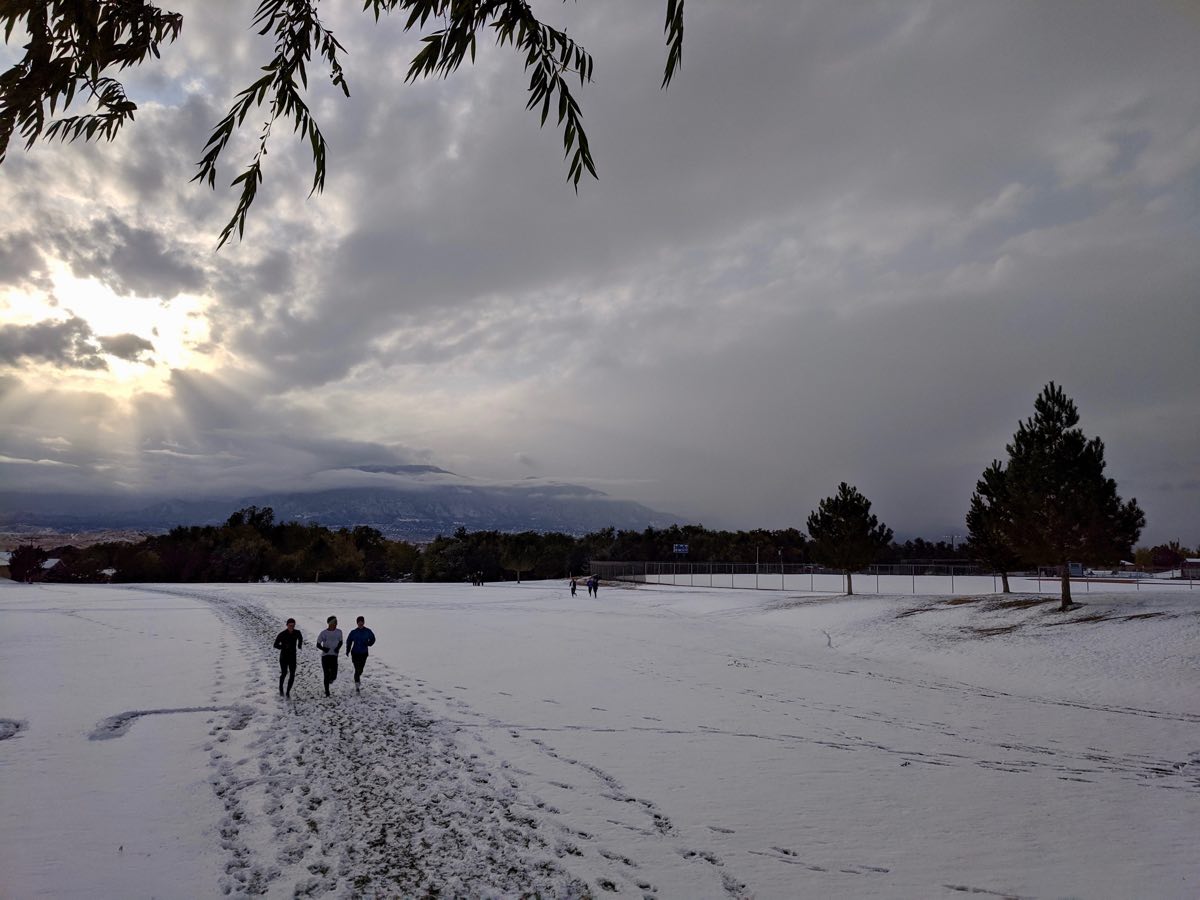[Editor’s Note: This article was written by Dr. Anthony Fleg, a runner, family medicine physician, professor, and founder of the New Mexico-based Running Medicine, a program of the Native Health Initiative, which aims to eliminate the health inequities faced by indigenous communities through health and wellness programs. His first book, Writing to Heal: A Pandemic Journey to Healing, is available for presale purchase now.]
Can I run if I have COVID-19? This is the main question many runners ask when faced with COVID-19 and other winter illnesses.
We runners also ask, is it harmful to run when dealing with respiratory symptoms? If I do run with such symptoms, how far and how hard should I go? Are there benefits to running when sick with COVID-19 or other viral illnesses?
In this article, we take a look at the mind and body aspects to these questions, using a simple four-step approach.
Step 1: Ask yourself, “Are my symptoms limited to above the neck?”
As a family medicine physician, running coach, and avid runner, I believe in waiting to run if you have respiratory symptoms below the neck such as a hacking cough, pleurisy (irritation of the lining of the lungs) that causes pain with deep breathing, or shortness of breath. The same goes for whole-body symptoms such as body aches, fever, chills, and significant fatigue. In those cases, skip to Step 4 below.
For symptoms that are limited to above the neck such as a runny nose, clogged sinuses, and sore throat, go for the run. In some cases, the cold air and deep breathing of a run can actually help to clear some of the above-the-neck congestion.
Step 2: Support your immune system by running easy and resting.
When our body is working to ward off infection, our goal is to do everything we can to support our immune system. I ask my patients who want to ignore viral illness a simple question: When you get sick, does your body ever give you tons of extra energy? It may sound silly, but the fatigue we feel when sick is our body is trying to slow us down so that it can focus its energy on beating the infection. Sleeping as much as the body needs, taking off from work, and in general avoiding things that stress the mind or body, are important when you are sick with COVID-19, the flu, or other viral illnesses.
How is running related to our immune system? When we push our limits in terms of distance or intensity, it does weaken the immune system. So, if you have the green light from Step 1 to run, make your run an easy one. Forget the unforgiving training plan that says to run for two hours and instead run a fraction of that time. For those who live by mile splits, leave the watch at home and run whatever feels like an easy effort. One prescription I often give: Run without a watch or care until you feel like it is time to turn around and head back home. If that run ends up being one mile or five miles, going by how you feel is a great guide for running during illness.
One COVID-19-related note: there are a good number of people who have had COVID-19 who feel their lung capacity is not the same in the weeks following their infection. Some of these people had very mild symptoms, but still note that breathing on the run is hard. Following the advice above, the goal is to keep the effort easy, which corrects for everything else. If someone’s breathing while walking is similar to their normal breathing effort while running, then that person should walk, not run.
Step 3: Focus on the mind and spirit benefits of running when sick.
Our focus when running while sick moves from things we can brag about on Strava to a mindset of holistic wellness. For many of us, we feel like caged animals when sick; thus the mental benefits of going for a run begin the second you are out the front door. Take an extra pause as you get outside to appreciate the weather that day and the chance to move. Feel the air hitting your face. Throw away strict goals of what the run “has to be” and just “be.”
I might suggest a mantra as well for these runs while sick, something along the lines of, “May this run be a part of my healing.” For those inclined to the spiritual and cultural aspects of running, put extra time and energy into focusing on those aspects of your movements.
Step 4: Give thanks.
Wherever you ran, however far you ran, and at whatever speed you ran, take time to give thanks for the run after you are done. This keeps our minds from worrying about what we weren’t able to do, instead focusing on how good it felt to get out there.
And if illness kept you from running that day, gratitude for the gift of running is very much present. In fact, when we don’t run, we often see just how important running is to us. You might sit to reflect, write, or even reminisce about where running has taken you. You might dream in your viral stupor about where running is about to take you this year.
Final Thoughts
We hope this proves useful, fellow runners. Let’s do everything we can to protect ourselves and our community from COVID-19, one mask and one elbow greeting at a time.
If you’d like to learn more about running when sick, read our articles about running with the common cold as well as running during and after the flu.
Call for Comments
- Have you run while sick, either with COVID-19, the flu, or something more serious?
- Do you find that running can sometimes help you to heal from an illness?
- Have you had lingering symptoms from COVID-19 that has affected your running?



